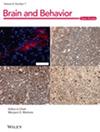This research aims to identify the problems and needs of families of children with reading difficulties, develop an Integrated Process-Based Family Education Program (IPMD-F) to address these needs, and implement it.
The study used a community-based participatory action research approach, following a four-stage process: general information collection, needs identification and action plan creation, development and implementation of the IPMD-F, and evaluation. Conducted during the 2023–2024 academic year in Ankara, Turkey, with 16 volunteer parents of children diagnosed with learning disabilities, data were collected using qualitative and quantitative tools. Qualitative data were analyzed using thematic reflexive analysis, while quantitative data were analyzed using the Wilcoxon signed-rank test to determine pre-test and post-test score differences.
Findings derived from a synthesis of personal development theory, a holistic approach, and a neurodiversity perspective revealed that the program assisted parents in attaining a holistic outlook, reinforcing parent–child communication, and cultivating coping strategies. Our assessment also substantiated the program's efficacy in practice.
This study highlights that the IPMD-F can be a significant resource for families of children with reading difficulties and suggests broader implementation of such programs.



